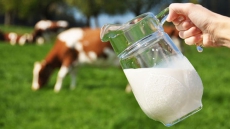While high heels may help you put the best fashion foot forward, their prolonged use may be a step backward for the health of your feet, new research says.
The research, done at a US university, proves that wearing high heels can strengthen the ankle initially, but leads to weakening and instability over time.
"With prolonged use you get muscle shortening in the back of the leg and muscle lengthening in the front of the leg. These changes in muscle length then can change muscle strength," said Tricia Turner, associate professor of kinesiology at University of North Carolina at Charlotte.
The researchers looked at ankle strength and balance in women training to be flight attendants, collecting data for each class year, freshman through senior, to consider the effects of high heels over time.
Turner said high heels can cause problems because they force the foot into a naturally unstable position.
"In sneakers or flat shoes, the foot is positioned in neutral where the bones of the ankle are under the bones of the lower leg, creating a more stable joint and a decreased likelihood of injury," she said.
"High-heeled shoes also change the normal walking or gait cycle, with the ultimate result being a less fluent gait cycle," Turner said.
She said ligament and nerve damage in the ankle could lead to issues in the legs and back.
"Changes at the ankle cause the muscles higher in the leg and back to lose efficiency and strength. It also changes the load the bones in and around the knee have to absorb which can ultimately lead to injury," Turner said.

However, she said that there are ways to minimise the risk of injury with exercises including strengthening, stretching and balance training.
Turner, who is also the athletic training coordinator in the College of Health and Human Services at UNC Charlotte, recommended combination of the following exercises:
* Stretching: To stretch lower leg muscles, use a towel to pull your foot towards you for 30 seconds.
* Strengthening: Use a theraband to strengthen the big muscles of the lower leg and ankle. Use the theraband to resist the ankle as it pushes up, out and in. To work the smaller muscles of the leg, put small objects on the floor and use your toes to pick them up.
* Balance: Stand on one limb at a time, holding position for 30 seconds. This may be made more difficult by closing your eyes or standing on an unstable surface.
The study was published in the International Journal of Clinical Practice (IJCP).





